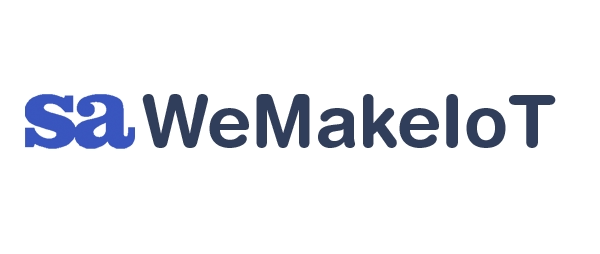How IoT Fuels Digital Transformation
Connected devices are all the rage now. Every year, more companies step forward with a common goal of harnessing the Internet of Things, one of the most rapidly evolving technologies in this digital era, to trigger a digital transformation that can secure their business’ future. But, the hard truth is that some of these companies aren’t succeeding in this goal; and not just because of inexperience with IoT. To leverage IoT effectively, an enterprise should have an efficient business plan. Let us look at how B2B can create a good business model with IoT for digital transformation.
The Role Of IoT In Digital Transformation
With IoT, smart connected products can deliver greater value in the form of innovative functionalities, increased reliability, and improved product utilization; all of which combined can disrupt business models regardless of existing but fading industry limitations.
Furthermore, improved data insights from IoT can also disrupt value chains where data is at the core and enable enterprises to make better decisions to create and capture more value. With IoT, we are talking about real-time data from connected products that offer accurate performance feedback and insights into the business ecosystem as a whole, enabling enterprises to improve their engineering and design solutions.
In a nutshell, these are a few ways how the IoT fuels digital transformation.
- Opens up new business opportunities
- Reduces operational cost
- Delivers tailored experience to customers
- Improves decision-making
- Improves employee productivity
- Empowers specific business models
IoT In B2B Spectrum
B2B IoT interactions are generally estimated to have a healthier future compared to B2C. Though IoT is generally adopted in the B2B business model for improved B2B customer relationships, the true applications of IoT in the B2B spectrum present far greater benefits, including but not limited to:
- Improved marketing
- Comprehensive asset management & tracking
- Optimized use of human resources
- Improved workforce management
- Improved logistics
- Improved health, safety & environmental compliances
- Smart supply chains
- Automated end-to-end sales
A great example that perfectly highlights innovative utilization of IoT is ZEISS, a leading manufacturing equipment provider. ZEISS understood that B2B customers like to stay updated on product performance & anything that assures optimum utilization of products.
However, ZEISS found it difficult to share accurate data securely with its customers. So they partnered with CISCO and used their IoT product ‘Kinetic’ to enable the continuous collection of equipment data in a secured environment. The ecosystem facilitated secure data sharing which subsequently helped ZEISS’ customers to maximize their products. Subsequently, ZEISS significantly increased customer loyalty and CLV (customer lifetime value). By keeping their customers informed by utilizing IoT, ZEISS achieved a 20% increase in service sales. This example also emphasizes the rapid growth of IoT-based marketing.
The main challenges that deter B2B companies from adopting IoT are the inability to define, design, govern and fund IoT implementations. In India, this is primarily due to a lack of IoT expertise. Not many companies can afford IoT expertise to integrate IoT into their business ecosystem without considerable risks. Fortunately, the IoT landscape has already grown enough to facilitate digital transformation among B2B SMEs at a much smaller investment than before.
Concerns regarding a lack of uniform IoT governance and security standards are being addressed. The growing need to gain a competitive advantage when peers have already begun IoT implementations seems to be the most compelling need for IoT adoption among B2B companies today. Whatever the reason may be, IoT adoption certainly is pivotal for the sustainable growth of the B2B business model in the coming times.
Getting Started
If your enterprise lacks experience with IoT, it’s wise to start small and roll out a B2B business model only after you have figured out its potential and risks. The initiative will have a higher chance of success and a more seamless digital transformation if you are willing to invest in an experienced IoT specialist that can provide solid, customized IoT solutions for your business or help you figure out an effective B2B business model. Such expertise can certainly give your business a massive competitive edge and fuels IoT for digital transformation.
Endnote
Jumping on the IoT bandwagon may seem intimidating. But if your organization is aware of the impact and influence of popular digital technologies, then you know it’s high time to make that jump. Disrupting and getting disrupted is easier today in the digital realm. But if you are holding the stick, wouldn’t that be a good move?
The Internet of Things has potential. But if you are interested in harnessing it for digital transformation, make sure you do it strategically. The most ideal and inexpensive approach would be to engage in a strategic partnership with an IoT vendor who understands how to trigger digital transformation with IoT disruption.
At WeMakeIoT, we specialize in aiding businesses to leverage IoT the right way – by introducing an appropriate business model. Get in touch with us to learn more.



